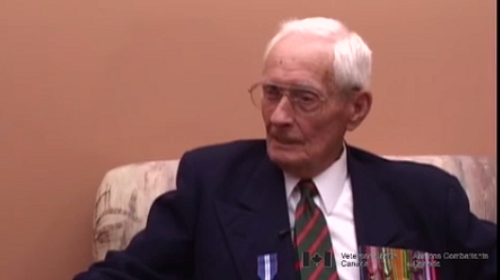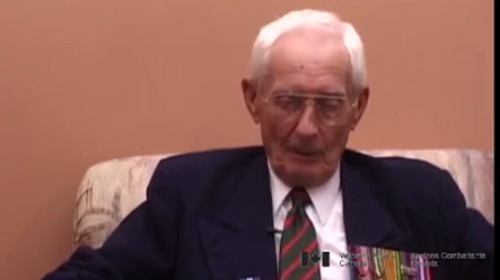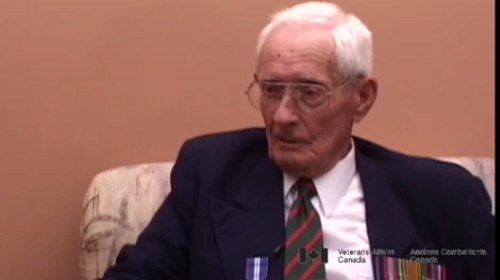Life as a POW
Heroes Remember
Life as a POW
Well they put us in that North Point.
It had been an old Chinese holding valve for
people who had run away from China to get away from the Japs
as they advanced down the Pearl River.
They were shelled. There was parts of the roof was on.
The other buildings were shattered.
The old cookhouse that the Chinese had used, it was badly battered.
So they fixed it up enough and we made fires
cause all the buildings were broken down around there.
We get the old wood and make fires and cook our rice.
I remember they had a, some of the rice we cooked into an old bath tub.
We piled the rice in there and water to get something to eat.
Cause we had no food.
That was all gone and then they started taking us across the harbour
on ferry boats to work on the Kai Tek airport.
We were still at North Point.
The airport at Kai Tek wasn't very long.
At the west end of the airport, Kai Tek,
there was a Chinese village there called Kai Tek.
So the Japanese just brought in a couple of bulldozers
and some tanks and they flattened all these buildings.
They knocked this village right down and then we had to fill it in
and they (inaudible) the railways. Little narrow railways
and cars and we started to dig down a hill.
So we could level that hollow where that village was.
We smoothed that right over.
So we covered that village right over
and then we put mixed cement and made runways,
extended the Kai Tek runways.
And we'd work all day till you couldn't see to work anymore
and then they'd take us back again.
We'd get one can of rice a day over there,
and then they had a sweet seed, a small brown seed.
I don't know what it was.
They'd give us so much of that and then we'd
get a small dish of that, for like a gruel or something.
That was sweet. We looked to get that stuff.
And big men suffered more than small men.
Cause it's like a truck or a car.
If you have a big car, it's gonna use more gas.
Well, a big man needs more so you could see these big men,
200 pounds and up, they didn't last too long.
Yeah, they went first. Yeah.
Related Videos
- Date modified:












